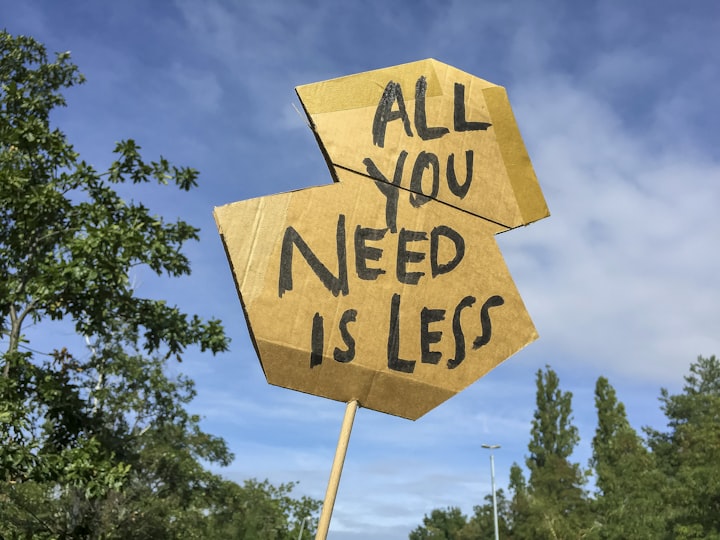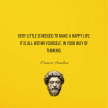The disease of our time
Wisdom Wednesday #5

Amusing ourselves to death
I enjoy keeping up with current popular books and what's going on in the reading community. Unfortunately, a trend has increased that I believe to be a symptom of our sick society. People are more obsessed with volume than with value. This means that people would rather read 30 good new books than three great old ones. This idea that volume is greater than value is everywhere, most notably in the news. Do you really need to know what is happening every day, let alone every week? One could say that by spending so much time consuming superficial content, we are amusing ourselves to death.
Less really is more.
You don't want to stop when you have enough; you want to stop when diminishing returns kick in. "Diminishing returns" is the idea that after a specific point in consumption, the benefit gained for every additional unit of consumption decreases. Maybe this is to be expected since we live in the information age, but information is nothing without action, and that is what less consumption promotes because you have the time to let the ideas fester in your mind. The goal for 2023 should be to spend less time looking for volume and more time seeking value, more action, and less information. The goal should be to embody our philosophies and not simply memorize them. Less reading, more writing; less watching, more talking; less doing, more being.

When will enough be enough
If you don't regard what you have as enough, you will continue searching for more instead of utilizing what is in front of you. In doing so, you will let opportunities fall by the wayside. Just ask yourself how many self-help books you've read and how many more you still want to read. It's natural for humans to want more, but often, in seeking that abundance, we dilute what we already have. This isn't simply in terms of information but also money and time. A general rule of thumb is to pursue efficiency before pursuing more. This way, you guarantee that when you do get more, you can maximize it.
Seneca on time
The philosopher Seneca once said, "It is not that we have a short time to live, but that we waste most of it." If we want to live well, we have to set priorities. because devoting a little of yourself to everything means devoting most of yourself to nothing. By setting priorities, you allow yourself to concentrate on the task that will yield the most return. The practice of setting priorities is what creates depth in life; without it, we risk the most important thing of all, our time.
It's always struck me as odd when people say things like "the year flew by" or "Christmas is already here? It felt like November 1st a few weeks ago.". Seneca must have noticed this when he wrote: "Just as great and princely wealth is scattered in a moment when it comes into the hands of a bad owner, while wealth however limited, if it is entrusted to a good guardian, increases by use, so our life is amply long for him who orders it properly.".

Real Life
In an age of excess, it can be hard to discipline yourself to consume less, but in doing so, you open yourself up to deeper experiences. When in doubt, choose action (old) over information (new) and value (less) over volume (more).
The benefit of being "in the know" is oftentimes minuscule; understand that if it is important, someone else will let you know. Avoid what is superficial because, as Cato the elder said, "nothing is cheap if it is superfluous." Choose to be a person of essentials; focus on what is important; and remember that the more we value things, the less we value ourselves. Quit being a slave to your desires; don't allow yourself to be pulled in all directions; your life is happening now; attend to it like a mother to her hatchling, and in time you will see the fruits of your labor grow to be plentiful and resistant to the disease of our time, superficiality.
In good faith
Kene Ezeaputa
About the Creator
Atlas Aristotle
Trying to do my best






Comments
There are no comments for this story
Be the first to respond and start the conversation.